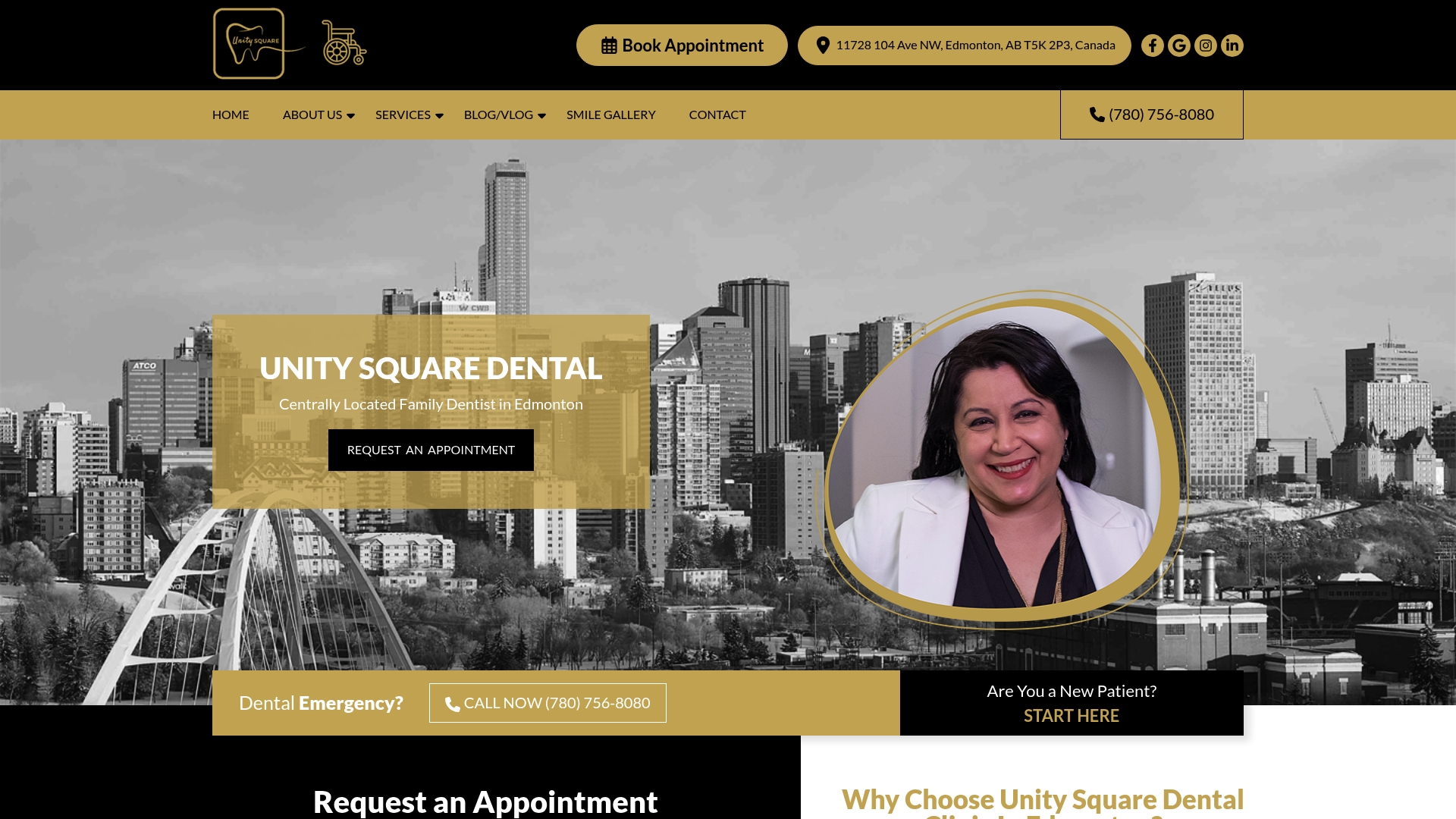
Gum bleeding might seem like a minor hassle after brushing, but it signals much more than just irritated gums. Most people think a little blood is harmless, yet over 47 percent of adults in the US show signs of gum disease according to nationwide research. The surprising part is that bleeding gums can be a hidden warning sign for serious health problems far beyond your mouth.
Table of Contents
- What Are Gum Bleeding Reasons And Their Symptoms?
- Why Gum Bleeding Matters For Your Oral Health
- How Gum Bleeding Can Indicate Underlying Conditions
- What Role Does Dental Care Play In Preventing Gum Bleeding?
Quick Summary
| Takeaway | Explanation |
|---|---|
| Bleeding gums indicate potential dental issues. | Gum bleeding often signals gingivitis, requiring attention before it escalates. |
| Regular dental check-ups are crucial. | Routine oral examinations help catch gum disease early and promote long-term health. |
| Proactive oral hygiene can prevent bleeding. | Proper brushing and flossing reduce bacterial buildup, safeguarding gum health. |
| Chronic gum bleeding may signal systemic health risks. | Persistent bleeding could indicate conditions like diabetes or heart disease that necessitate medical evaluation. |
| Seek professional help for personalized care. | Dental professionals can create tailored plans addressing individual risk factors for gum health. |
What Are Gum Bleeding Reasons and Their Symptoms?
Gum bleeding is often a subtle yet significant indicator of underlying oral health challenges. Understanding why gums bleed helps patients recognize potential dental issues before they escalate into more serious conditions.
Primary Causes of Gum Bleeding
Gum bleeding typically stems from several interconnected factors that compromise oral health. Gingivitis, the initial stage of gum disease, represents the most common reason for bleeding gums. This condition develops when bacterial plaque accumulates along the gumline, triggering inflammation and causing delicate gum tissues to become sensitive and prone to bleeding.
Key factors contributing to gum bleeding include:
- Poor oral hygiene practices
- Aggressive brushing techniques
- Nutritional deficiencies
- Hormonal changes
- Certain medical conditions
Recognizing Symptoms and Warning Signs
Identifying gum bleeding symptoms requires careful observation of several critical indicators. Beyond visible blood during brushing or flossing, patients might experience swollen or tender gum tissues, persistent bad breath, and gums that appear red or puffy. These symptoms suggest an active inflammatory process requiring professional dental intervention.
Below is a table summarizing the primary causes of gum bleeding and their associated common symptoms, offering an at-a-glance overview for easy identification and awareness.
| Cause of Gum Bleeding | Common Symptoms |
|---|---|
| Poor oral hygiene | Gum bleeding, irritated tissues |
| Aggressive brushing | Soreness, blood during brushing |
| Nutritional deficiencies | Swollen gums, slow healing |
| Hormonal changes | Red, sensitive gums |
| Certain medical conditions | Persistent or unexplained bleeding |
| Gum disease (gingivitis) | Red, puffy, bleeding gums |
| Plaque accumulation | Bad breath, inflamed gums |
For those seeking more comprehensive insights, our guide on understanding gum issues provides detailed information about managing and preventing gum bleeding. Professional dental assessment remains the most reliable method for accurately diagnosing the root causes of gum bleeding and developing targeted treatment strategies.
Why Gum Bleeding Matters for Your Oral Health
Gum bleeding transcends a mere cosmetic concern and represents a critical signal of potential systemic health challenges. Research from the American Dental Association highlights the intricate connection between oral health and overall wellness.
Long Term Health Implications
Bleeding gums are not just a minor inconvenience but a potential harbinger of serious health complications. Chronic inflammation triggered by persistent gum bleeding can contribute to broader health risks, including cardiovascular disease, diabetes complications, and compromised immune system functioning. When bacterial infections from gum disease enter the bloodstream, they can potentially affect multiple organ systems, creating a complex health cascade.
This table compares how gum bleeding can be both a dental concern and a potential indicator of wider systemic health issues, helping clarify the connection between oral and overall health.
| Aspect | Oral Health Impact | Systemic Health Implication |
|---|---|---|
| Chronic gum inflammation | Gingivitis, periodontitis | Increased risk of heart disease |
| Persistent bleeding | Progression to advanced gum disease | Potential complications in diabetes management |
| Bacterial infection | Tooth loss, receding gums | Compromised immune response, risk for stroke |
| Poor oral hygiene | Plaque and tartar buildup | Potential adverse pregnancy outcomes |
| Ignored dental signs | Worsening oral discomfort | Delayed diagnosis of underlying systemic conditions |

Key systemic risks associated with untreated gum bleeding include:
- Increased risk of heart disease
- Higher potential for stroke
- Potential complications in managing diabetes
- Compromised respiratory function
- Potential pregnancy complications
Preventative Importance
Addressing gum bleeding early can significantly mitigate long term health risks. Proactive oral care involves more than standard brushing and flossing. Patients need comprehensive dental assessments to understand the underlying causes of gum inflammation. Learn more about our preventative gum care approaches to protect not just your teeth, but your overall health ecosystem.
Regular dental check ups, proper oral hygiene techniques, and understanding individual risk factors are crucial in preventing the progression of gum disease and its potential systemic health implications. Professional intervention can transform what seems like a simple dental issue into a comprehensive health management strategy.
How Gum Bleeding Can Indicate Underlying Conditions
Gum bleeding serves as a crucial diagnostic window into broader health challenges. Research from the National Institutes of Health reveals that persistent oral bleeding can signal complex systemic health conditions extending far beyond standard dental concerns.
Diagnostic Signals in Systemic Diseases
When gums bleed consistently, they might be communicating critical information about internal health processes. Specific medical conditions can manifest through oral symptoms, transforming seemingly routine bleeding into a potential early warning system. These conditions range from metabolic disorders to blood-related complications that require comprehensive medical investigation.
Key systemic conditions potentially signaled by gum bleeding include:
- Diabetes mellitus
- Autoimmune disorders
- Blood clotting disorders
- Leukemia
- Vitamin deficiencies
Beyond Surface Level Symptoms
Understanding gum bleeding requires a holistic approach that connects oral health with comprehensive physiological assessment. Blood disorders and immune system irregularities can produce subtle oral manifestations that traditional medical screenings might overlook. Learn more about our comprehensive diagnostic approaches to ensure your oral health reveals a complete picture of your overall wellness.
Professional dental examinations become critical in deciphering these nuanced health signals. Dentists can detect early indicators of systemic diseases through careful oral tissue evaluation, transforming routine check ups into potentially life saving diagnostic opportunities. Recognizing gum bleeding as a complex health indicator empowers patients to seek timely medical interventions and maintain proactive health management strategies.
What Role Does Dental Care Play in Preventing Gum Bleeding?
Research from the National Institute of Dental and Craniofacial Research underscores the pivotal role of comprehensive dental care in preventing and managing gum bleeding. Professional interventions and disciplined oral hygiene represent the primary defense against progressive gum disease.
Comprehensive Preventative Strategies
Professional dental maintenance involves a multifaceted approach to protecting gum health. Regular dental check ups enable early detection of potential issues, allowing for targeted interventions before minor inflammation escalates into significant oral health challenges. Dental professionals can remove hardened plaque (tartar) that standard home care cannot eliminate, reducing bacterial buildup that triggers gum bleeding.
Key preventative dental care elements include:
- Professional dental cleanings every six months
- Comprehensive oral examinations
- Personalized oral hygiene guidance
- Advanced plaque and tartar removal techniques
- Early detection of potential gum disease markers
Personalized Oral Hygiene Techniques
Beyond professional interventions, daily oral care practices form the foundation of gum health management. Proper brushing techniques, using soft-bristled toothbrushes, and implementing correct flossing methods can dramatically reduce gum inflammation. Explore our detailed guide on gum health maintenance to understand how individualized approaches can transform your oral wellness strategy.
Dental care transcends routine cleaning. It represents a holistic approach to preventing gum bleeding by addressing individual risk factors, providing targeted education, and developing personalized treatment plans that consider each patient’s unique oral health landscape. Consistent, professional dental care serves as the most effective preventative measure against chronic gum bleeding and associated systemic health risks.

Take Charge of Your Gum Health with Expert Edmonton Dental Care
Are you worried about gum bleeding or noticing symptoms like swollen gums, tenderness, or persistent bad breath? This article highlights how these issues are not just minor irritations but important warning signs for your overall health. Ignoring bleeding gums can lead to serious concerns like chronic inflammation or even signal hidden systemic conditions. At Unity Square Dental, our Edmonton dental team understands how overwhelming it can feel when gum health becomes a daily concern and you are unsure what the next step should be.

Do not let uncertainty stop you from achieving a healthier smile. Explore how Unity Square Dental uses advanced technology and personalized care to identify and address the causes of gum bleeding from early-stage gingivitis to more complex oral health challenges. Discover our full range of preventative solutions and comprehensive gum assessments designed for your comfort and peace of mind. Book your appointment today for answers and lasting relief. Your healthier smile starts when you take action now.
Frequently Asked Questions
What causes my gums to bleed when I brush?
Bleeding gums during brushing is often due to gingivitis, the earliest stage of gum disease caused by plaque buildup. Improve your oral hygiene by brushing gently with a soft-bristled toothbrush and flossing daily to help reduce inflammation within 30 days.
How can I tell if my gum bleeding is serious?
If your gum bleeding is persistent and accompanied by symptoms like swollen gums or bad breath, it may indicate a more significant issue, such as gum disease. Schedule a dental appointment to assess the situation and receive appropriate treatment.
What home care practices prevent gum bleeding?
Daily oral care practices such as gentle brushing and proper flossing techniques are essential for preventing gum bleeding. Commit to a routine of brushing twice a day for two minutes and flossing daily to maintain gum health.
Are there any systemic health conditions linked to gum bleeding?
Yes, persistent gum bleeding can signal underlying health issues such as diabetes or blood disorders. Consult with your dentist or healthcare provider for a comprehensive evaluation to rule out any serious conditions.
How often should I visit my dentist to prevent gum bleeding?
Regular dental check-ups every six months are crucial for preventing and detecting gum disease early. Ensure these appointments are a priority in your health care routine to maintain healthy gums and smiles.
What dietary changes can help with gum bleeding?
Nutritional deficiencies can contribute to gum bleeding, so incorporating a balanced diet rich in vitamins C and D can support gum health. Aim to include leafy greens, citrus fruits, and fortified dairy products in your meals daily.

